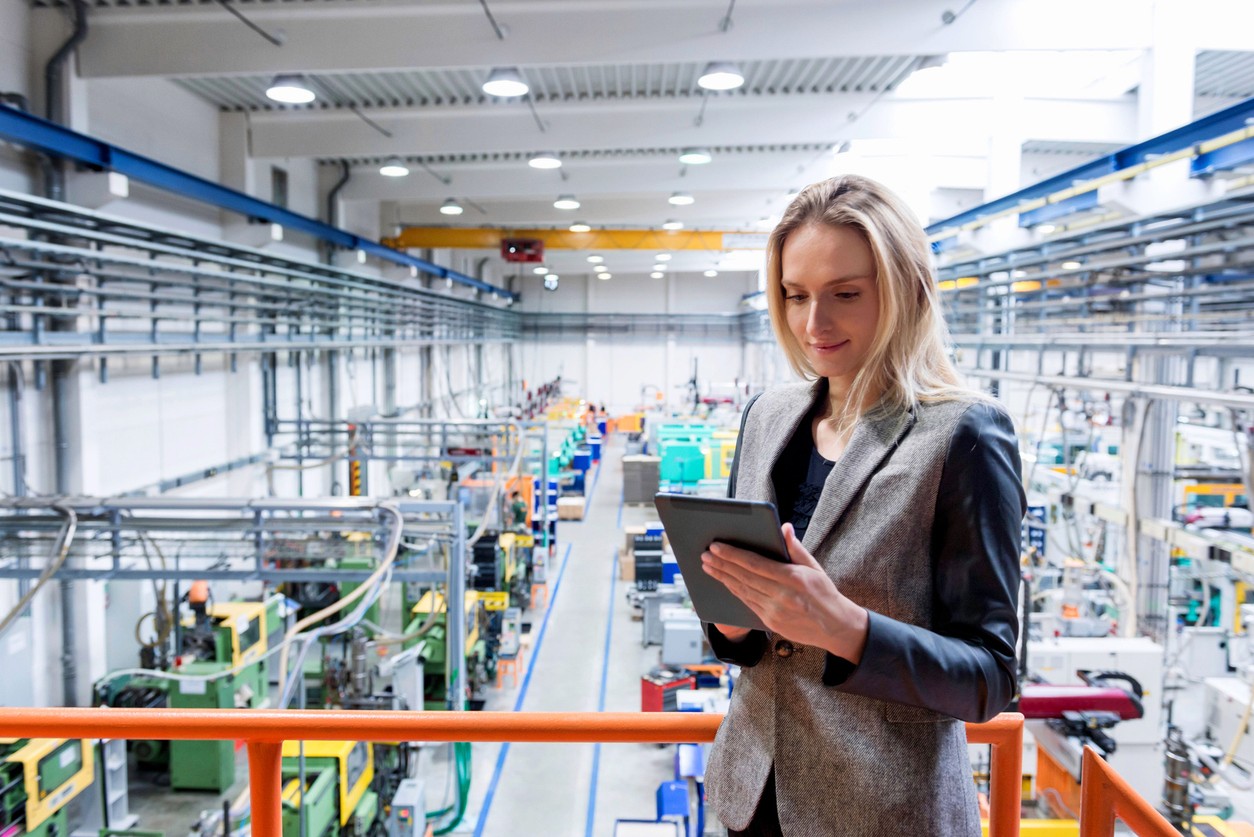From absenteeism to poor retention and high turnovers, industrial hiring is filled with plenty of challenges. However, AI has proved time and time again that it can help you maintain your competitive edge, attract quality candidates, and keep up with the ever-changing industrial landscape.
If you haven't looked into using AI tools to help you fill last-minute gaps and enhance productivity, now is the time to do so.
In this article, we will look at how AI is rapidly transforming recruitment in the industrial sector. Additionally, we examine how this technology allows companies to source and screen reliable workers for both short-term and long-term positions.
AI and How it Helps Industrial Human Resources Departments
Artificial intelligence (AI) can perform tasks that usually require a certain level of human intelligence and discernment.
Over the past decade or so, AI algorithms have become increasingly popular as they've helped HR professionals overcome significant challenges. Here are a few of the processes that AI can assist with:
#1: Identifying and deploying the right workers
By identifying and deploying the right workers quickly, AI assists industrial staffing platforms around the world. A 2023 study showed that 96% of staffing firms plan to use AI within the next five years. This is thanks to the fact that AI can easily scan vast amounts of data and fill industrial roles based on skills and reliability.
#2: Verifying worker credentials
One of the biggest threats to your operation is hiring workers who are not who they say they are. With human error, this can happen quite easily.
Fortunately, AI can verify worker details and credentials, presenting you with the ideal candidates for specific roles. This way, you'll minimize employee turnover and build a reliable and qualified workforce.
#3: Conversational AI for preliminary assessments
Conversational AI saves you time and resources by conducting preliminary assessments to determine whether or not a candidate is the right fit for the role. These intuitive AI systems can also answer any questions the applicant has about the job opportunity, which is a role that was previously filled by humans.
#4: Marketing job offers on the right platforms
AI programs can craft engaging descriptions for any job opportunities you'd like to advertise, ensuring they attract and reach the right people. AI's other marketing capabilities include automated content creation, social media analysis, and search engine optimization.
#5: Reduce absenteeism
Absenteeism accounts for roughly $8.5 billion in losses each year. Fortunately, AI-powered insights improve shift fulfillment rates, reduce absenteeism, and ensure a dependable labor pool, thus strengthening your workforce development.
#6: Forecasting using predictive analytics
By forecasting labor demand accurately, predictive analysis can help optimize scheduling, avoid over-staffing, and reduce employee turnover.
Ensuring the right number of workers are available at the right time is particularly useful during the holiday rush when you need more workers than usual.
Beyond Staffing and Hiring
While AI can help tremendously with creating job postings, scanning resumes, and answering questions via chatbots, it can also handle more complex tasks that go beyond staffing and hiring.
In addition to streamlining the hiring process, AI can help your industrial business in the following ways:
Improving operational efficiency by handling admin-heavy tasks
Maintaining high levels of quality control
Ensuring compliance with local labor laws
Allowing you to make data-driven decisions
Supply chain optimization
Trends in Automation: How AI is Shaping the Next Generation of Staffing Solutions
Already, more than 87% of companies use AI in their recruitment process, and this percentage is only expected to rise as more people become aware of the benefits.
As AI continues to evolve, businesses can expect even smarter staffing solutions that boost efficiency while creating a more seamless experience for both employers and workers.
What is generative AI?
Generative AI is a type of artificial intelligence that creates text, images, and predictions based on data patterns, and it's revolutionizing the staffing industry.
This advanced technology can automate job descriptions, interview questions, and shift scheduling while enhancing candidate engagement through AI-powered chatbots.
AI issues that still need to be solved
Artificial intelligence and machine learning have come a long way in recent years, but there is still a long way to go. Some of the problems that AI needs to overcome include bias in decision-making, lack of critical thinking, employee resistance, and integration with existing systems.
AI and job displacement
Despite the growing popularity of artificial intelligence in staffing solutions, hiring a new staff member should still be somewhat personal. Yes, AI applications can help vet potential candidates and streamline repetitive tasks, but you should take the time to interview candidates personally when possible, especially for long-term hires.
FAQs
Are AI tools difficult to implement?
Most modern AI-driven platforms are simple to use and can easily be integrated with any HR systems you may already have in place.
However, proper training and meticulous data preparation are both essential if you want to enjoy a seamless transition.
Will AI replace human decision-making when it comes to staffing?
No. While AI tools can help HR teams make informed decisions, they will never be able to replace the human element needed for interviewing job seekers and hiring new employees. Modern staffing solutions are a great example of human-machine collaboration and you shouldn't worry about job displacement.
Can AI help with compliance?
Yes. AI workforce management technology can help track local labor law updates, monitor working hours, and flag any potential compliance risks.
How does AI benefit workers in the hiring process?
AI systems can support workers by minimizing the time spent on application processes and matching job seekers with opportunities that best align with their specific skill sets.
Wrapping Up
Transform your hiring practices by implementing AI systems designed to help you find the perfect candidates for specific roles. Not only will you save time, but you'll also reduce the risk of absenteeism, human error, and any last-minute gaps.
At Traba, we aim to empower both businesses and workers to reach their full productivity and potential by building a world where the global supply chain operates at peak efficiency. Download our free labor management tool and discover how our streamlined processes can help boost productivity.




